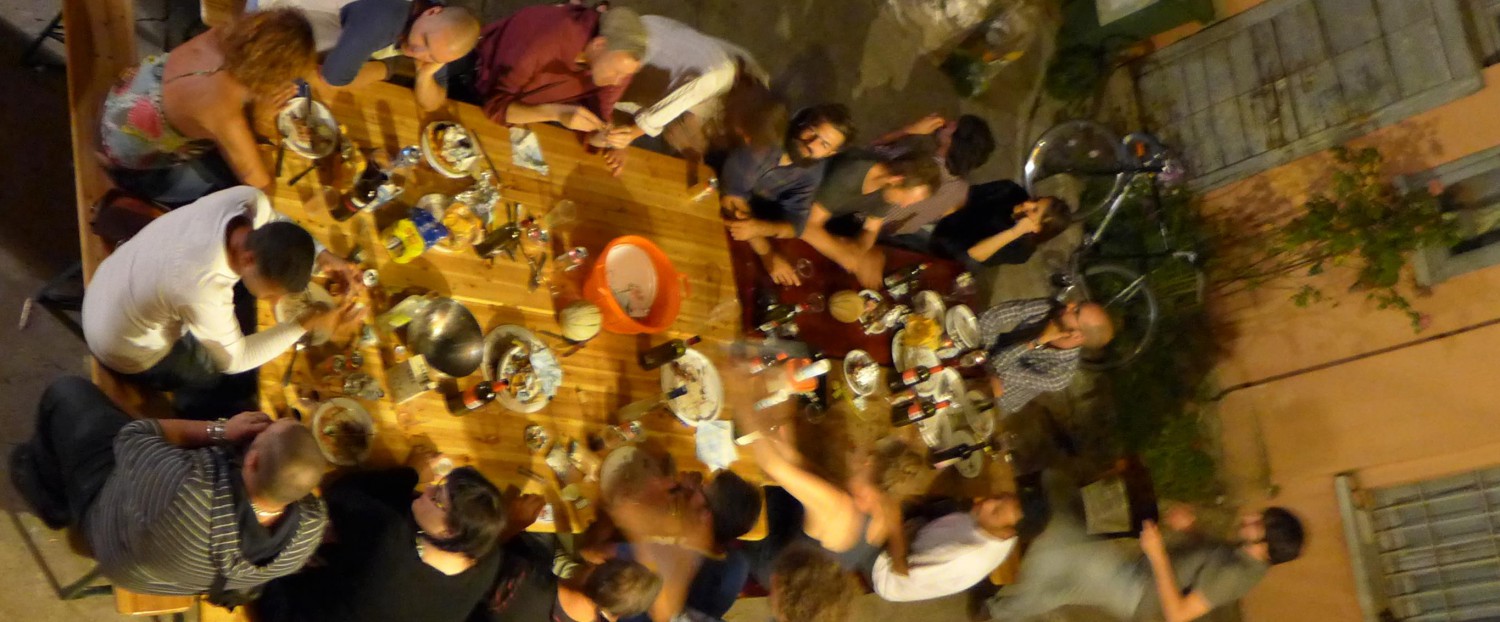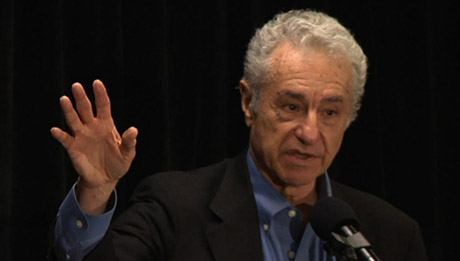I keep finding myself saying to people that I’d like to see a political culture in the UK. This is about developing the language to describe our situation and possible routes out, and about finding new ways of working together. You could contrast it to the NGO approach: trying to campaign and lobby government without…
Category: Economic organising
Our empty urban commons
My journey began when I pulled out of my driveway onto empty streets. Not completely empty you understand; just deadly quiet, like most streets in Britain. You notice it when you come back from, say, India, or Colombia, where the streets are often full of people socialising, selling, buying, praying, begging or otherwise lurking in…
Mutual Home Ownership and its suitability for small co-operatives
This post is about a new type of housing co-op, a Mutual Home Ownership Society (MHOS) only one example of which currently exists in the UK. That co-op is LILAC and I interviewed a member to find out more about it. I was particularly interested in whether it was suitable for small house-share co-ops, and…
Reforming the corporation?
My last post mentioned the US-based Democracy Collaborative, which advocates an economic program that it is possible to imagine being implemented. I think another route to the more cooperative economy they imagine would involve pushing, by a series of reforms over time, the current corporate system towards a more participatory model. The end would perhaps…
A co-operative economy?
The rhetoric of TINA (There Is No Alternative) in the matter of economic organising still permeates British politics. We are offered markets or state control and told that markets are better. We are offered corporations or nationalised industry and told that corporations are better. We are offered private property or state ownership and told that…
Working men’s clubs – a history of self-organisation
I’m currently reading Not Just Beer And Bingo by Ruth Cherrington, a history of working men’s clubs in Britain. At the height of their success there were over 4000 of them. Here a few quick thoughts: While many clubs developed under the patronage of wealthy people, most of the people involved disliked meddling from their…
America Beyond Capitalism by Gar Alperovitz – a brief review
I don’t usually read books by people like Gar Alperovitz – he had a career as a Legislative Director in the U.S. Senate and House of Representatives and very much tries to speak a language that professional politicians will understand. I couldn’t give a monkey’s whether those people understand me, since they’ve never shown any…
Workers co-ops and trade unions: uneasy bedfellows
Last night I was at an event put on by Stir magazine, ‘Old Forms, New Strategies: Trade Unions, Co-operatives and the Commons’, which discussed the historical lack of co-operation between trade unions and the co-operative movement in the UK. The lack of interaction is not an accident. A mixture of ideology and self-interest means that…
The Meidner Plan – spreading corporate wealth through ‘Collective Capital Formation’
Rudolf Meidner, one of the architects of the Swedish welfare state – a pretty impressive thing to have on your CV – wanted to go a step further than simply taxing corporations. He proposed that companies issue new shares every year to the value of 20% of their profits. This share levy would be passed…
Attacks on organisations criticising Pacific Rubiales in Colombia
I did some work in Colombia with REDHER, a network of social organisations, and yesterday discovered that on Saturday (20th July) their office was broken into and computers and other equipment stolen. This appears to be part of a campaign of retaliation and intimidation in response to a Juicio Etico – a people’s tribunal –…








